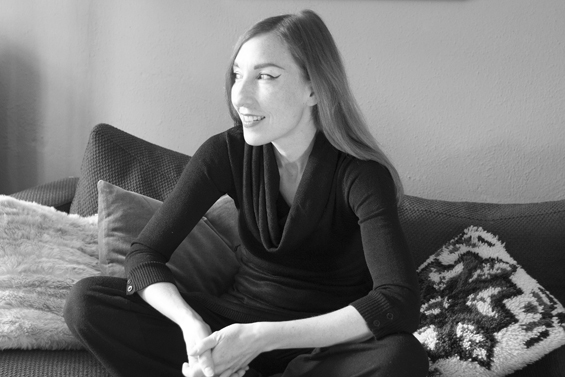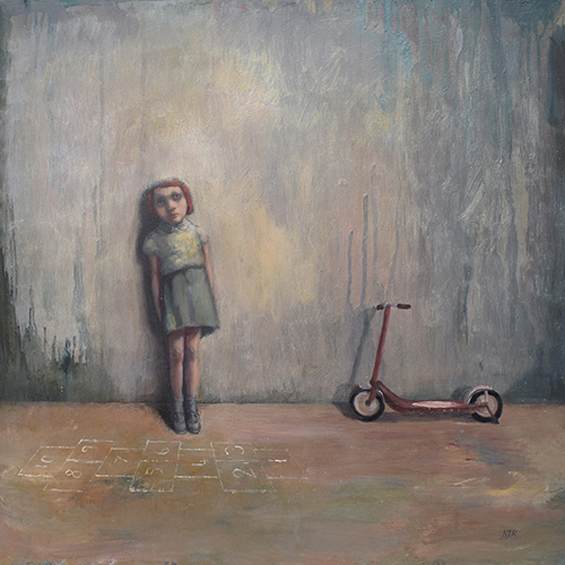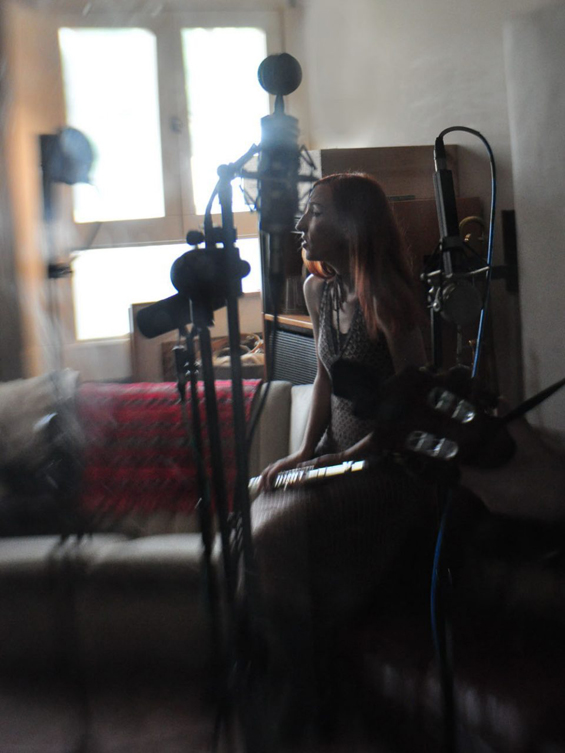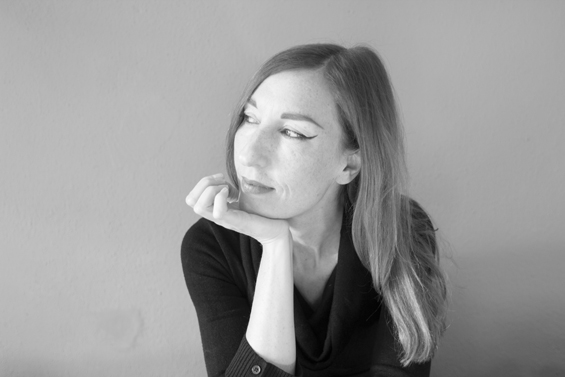

photo: Maya McAllister Demangeat
FIVE QUESTIONS WITH ANNE GARNER
Having been thoroughly enchanted by her 2015 release Be Life and most recently 2018's Lost Play (reviewed here), we thought it was high time to ask Anne Garner if she'd shed some light on her creative process and how she spends her days when not crafting bewitching music. She's an artist like no other, a songstress whose material, a wholly spellbinding blend of folk, electroacoustic, and chamber classical genres, hits even harder when graced by her singular voice and flute playing. She also appears in other contexts, such as the trio project Tetherdown with James Murray and Mark Beazley, whose First Flight album appeared on Slowcraft Records in 2016. textura is grateful to this special singer-songwriter for granting us this rare glimpse into her private world.
1. Thematically your new album concerns how the innocent joy of childhood is eventually supplanted by the weight of adult responsibility and the pressure to conform that erodes the uniqueness of the self. What prompted you to choose this as the theme for the project, and to what degree do you believe it's possible to regain that state of childlike joy after it's left behind?
I had a very strict religious upbringing and was often fearful of saying the wrong thing or simply saying how I really felt. The pressure to be a good Christian made me unhappy, and I've since found it difficult to determine who I am and what I want from life. I still find it hard but music and illustration have helped me find a voice and find my way. Seeing things as if for the first time, being in the moment, responding to instinct and being open to the unexpected—this is all done best when in a child-like mode of being. The times when I'm most creative and playful are when I'm most content. When I lose sight of that I'm always at my saddest and loneliest. I think we can regain that joy so long as we remember how to play.

2. Lost Play was three years in the making and features eight songs, which compared to the output of some songwriters is modest. Is it simply the case that you allow album production and songwriting to develop at their own natural pace or are these processes slow and difficult ones for you?
Making an album is always a slow and difficult process. I only write when I have the space and I'm in the right mood. I never force anything; it's too important, it's my mirror and my anchor.
I wrote "Fall Before the Night" in November 2014, and the rest of the album was written in 2015. What usually takes the real time is the production, and my husband and producer James Murray was busy with his own projects so I had to be patient. Not all the songs made it onto the album either; we're ruthless like that, the collection always has to work as a whole.
3. As Be Life, Lost Play's predecessor, is such a marvelous collection, did you feel any additional pressure in creating its follow-up, and what in your view are the key differences between Be Life and Lost Play?
Thank you for those kind words. I didn't feel any pressure because I approach each project on its own terms and never really have any outside view of what something is until perhaps much later. Be Life was a celebration of living, being truly alive, about hope and letting go. When I started Lost Play I knew I wanted to explore some darker territory. The upbringing I had left me vulnerable later in life to powerful controlling people and situations where I eventually lost myself completely. In some ways Lost Play is my attempt to work through that.

photo:
Kika Pierides
4. Lost Play is your fifth album (if one includes 2016's remix release, Be Life Relived). How is the Anne Garner of today different from the Anne Garner who released her debut Remaking the Pearl on Psychonavigation in 2005, and what does a typical day in the life of Anne Garner look like?
In 2005 I'd just had my very first songs remixed and released. I was finding my way with my solo work. I still lived in Sheffield and was mourning the loss of my mother. I was working out who I am and how to find emotional stability, how to manage the times when life feels out of control and overwhelming. It was a year before I met James who has had a massive impact and influence on my life.
He has definitely grounded me in many ways. I'm more assured and considered nowadays. It's a wonderful thing to live with someone you can be truly yourself with; for me it's essential that that person is creative, too. The wonderful home we've made together supports our goals and dreams. I still have the same drive and ambition as I did before, but I think I'm more balanced and a bit more realistic than I was.
For three days a week I teach singing, flute, and piano at home and also at a lovely little school. The rest of the week is my creative time, my favourite time. I love days where there's no plan so I can just do what I feel. As soon as I get up I write stuff, whatever comes out. I love looking out my bedroom window, thinking and drinking tea. James and I often run in the woods nearby. If there's any admin or promotion to do, I try to get it done in the morning. Then after lunch I'll work on music or draw or write.

photo: Maya McAllister Demangeat
5. Though I've been listening to your music for years, I know little about you aside from your music. There was a time when that was the norm, but in this era of social media the idea of an artist retaining an aura of mystery is of course a rare thing (it's maybe not coincidental that a parallel could be drawn between this loss of mystique and the loss of childhood innocence). What are your thoughts about the kind of sharing that's expected of an artist today? Is for you participation in social media one more example of the pressure to conform that eats away at a person's self?
I love mystery, the dark spacious areas in a painting, the breath and space between notes, the lyrics left unsung. This is where imagination thrives and where each listener finds his or herself in the music. In the past I've preferred to keep my everyday life separate. In any relationship it's important not to give everything at once; the wonder and excitement is in the process of getting to know one another.
I reveal a bit more nowadays, perhaps because I feel more confident about who I am as a person and as an artist. I still don't find using social media very natural; I'd much prefer to write a song or draw or even clean the house. It's obviously useful up to a point for promotion, but after a while I seem to feel diminished by it somehow.
I have been starting to allow my previously distinct roles as musician, artist, and teacher to come together and feel stronger for it. I invited my pupils to do a support slot at our last gig, and my next recording project will include illustrated companion pieces for each song. It's all coming together. Everything seems to make more sense now.
July 2018![]()